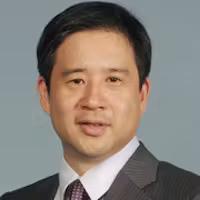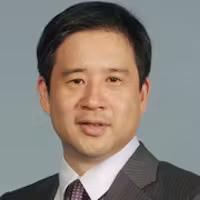Market opening, SEZs, privatization, WTO entry transformed rural economy, sparked urbanization, drove global trade and growth.
Market opening, SEZs, privatization, WTO entry transformed rural economy, sparked urbanization, drove global trade and growth.
This course examines China's remarkable economic transformation from 1978 to the present. It covers key reforms, fiscal and financial systems, globalization, and current challenges. You'll learn about China's gradualist approach to reform, including agricultural decollectivization, the rise of township and village enterprises, and state-owned enterprise reform. The course also explores China's integration into the global economy through trade and foreign direct investment, and analyzes sources of economic growth and structural change. Current governance issues and economic challenges are discussed, providing a comprehensive understanding of China's economic development and its global impact.
4.8
(189 ratings)
11,994 already enrolled
Instructors:
English
What you'll learn
Describe the key economic reforms in China since 1978 and their consequences
Explain how China's fiscal and financial systems have impacted development outcomes
Assess China's integration into the global economy and its effects
Analyze different sources of economic growth in China since 1978
Evaluate the current economic and policy challenges facing China
Understand China's governance model and its role in economic development
Skills you'll gain
This course includes:
6 Hours PreRecorded video
7 quizzes
Access on Mobile, Tablet, Desktop
FullTime access
Shareable certificate
Closed caption
Top companies offer this course to their employees
Top companies provide this course to enhance their employees' skills, ensuring they excel in handling complex projects and drive organizational success.





There are 6 modules in this course
This course provides a comprehensive analysis of China's economic transformation since 1978. It is structured into five main modules, each focusing on a crucial aspect of China's economic development. The course begins with an examination of China's gradualist reforms, including the decollectivization of agriculture and the evolution of state-owned enterprises. It then explores fiscal and financial system reforms, detailing the challenges and opportunities these changes presented. The third module delves into China's globalization process, covering international trade policies and foreign direct investment. The fourth module analyzes sources of economic growth and structural change in China's economy. The final module addresses governance issues and current economic challenges facing China, providing students with a comprehensive understanding of China's economic journey and its future prospects.
Orientation and Module 1: China's Gradualist Reforms
Module 1 · 2 Hours to complete
Fiscal and Financial System Reform
Module 2 · 1 Hours to complete
Globalization: Trade and Foreign Direct Investment
Module 3 · 2 Hours to complete
Economic Growth and Structural Change
Module 4 · 1 Hours to complete
Governance and Current Challenges
Module 5 · 2 Hours to complete
Final Exam and Course Evaluation
Module 6 · 1 Hours to complete
Fee Structure
Payment options
Financial Aid
Instructor
Expert in China's Economic Development and Director at HKUST
Albert Park is a distinguished development and labor economist specializing in China's economic development. He serves as the Director of the Institute for Emerging Market Studies, Chair Professor of Social Science, Professor of Economics, and Senior Fellow at the Jockey Club Institute for Advanced Study at HKUST. His extensive research and commentary have been featured in prominent publications such as The Economist, New York Times, and Wall Street Journal. Park is also a Research Fellow at several prestigious institutions, including the Centre for Economic Policy Research and the International Growth Centre. His recent work explores various topics, including firm performance, poverty, migration, health, and education in China. Additionally, he has played a key role in significant survey research projects in China and has previously held faculty positions at the University of Michigan and Oxford University.
Testimonials
Testimonials and success stories are a testament to the quality of this program and its impact on your career and learning journey. Be the first to help others make an informed decision by sharing your review of the course.
Frequently asked questions
Below are some of the most commonly asked questions about this course. We aim to provide clear and concise answers to help you better understand the course content, structure, and any other relevant information. If you have any additional questions or if your question is not listed here, please don't hesitate to reach out to our support team for further assistance.



